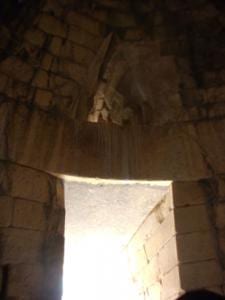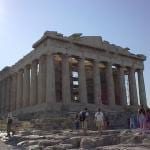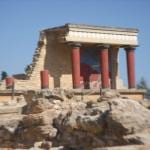 Make history. Tell a story and root that story in the people, family, and times.
Make history. Tell a story and root that story in the people, family, and times.
Otherwise, we can become rootless captured by our facile judgments of those who came before us. We expect to live in the best of times, so when we discover we live in the worst of times, we forget that this always is true. Every age is golden and dross: the best of times, the worst of times. We must find this in the ancient ways of our own communities: the practices of the old men of West Virginia I knew as a boy. We then broaden them, carefully correct them, by listening to the stories of other peoples.
This bicentennial year of Greek independence I am reminded of the stories of Hellas. One was told by a captivating story teller over good food and drink in Mycenae. He kept telling his tale until I was as interested in him, his family, constantly digging up Homeric relics on the farm, as I was in the stones around me. This came to a culmination when he talked my college students into one last place, a bit after closing: They call it the tomb of Agamemnon, the treasury of Atreus, this beehive structure in Mycenae, Greece. Homer captures the imagination so that when the cities, even fabled Troy, turned out to be real, those first archeologists saw Homeric heroes everywhere. These early scientists found what they wanted to find, but may have missed greater treasure: the rooted people that farmed, prayed, and fought for Greece where Agamemnon had ruled.
That was not his story, however. He told us of bombs, and Nazi, and destruction. He told about a brave community that resisted fascism and communism to stay free.
When within the beehive structure of the treasury or tomb, our guide told us that during World War II (the War to him) his folk had come to the tomb to hide from the strafing and the Nazis. He was born in the tomb of Agamemnon: life from an ancient place of the dead. When I turned around, as he was telling his story, I saw light flooding into the room. Hope captured an image that shows a bit of what I saw, but not the glittering walls nor the sound of a gentleman telling a tale.
He was a rooted man. This was not because he had not traveled, to Athens and abroad. His English was impeccable and his Homeric chant bewitching. The living man was at home: past, present, future. This essential trait must be recovered or we will be lost.
We move too often, we do not learn the stories of where we have been. When we do hear the tales, we sit in judgment on them. Too often we demand that they entertain us, before they have been worked into our bones. We do not grow up on Homer and the liturgy of John Chrysostom. Our fathers and our mothers are not buried in the soil where we work. This is not how we are designed to live: heroes go off to adventures and then come home. We go there and back again, but our just now culture gives us no “there” where we can return. We go there and on to more there until there is nothing more.
We are Alexander weeping at having no more worlds to conquer, because he left the fatherland too far behind his triumphs.
This two hundredth anniversary of Greek independence reminds me that we must root ourselves in a place and stand. We may be a diaspora, but we stand in solidarity with every motherland in our diverse school. We have begun to plant olive trees in our new home here at The School and College. We have a few sheep! We are telling stories, making history, and rooting that history in ancient liturgies and a global church: Athens, Antioch, Alexandria, Aksum. . . but also here in homely Houston, a new city kept that if we love her can also be kept in safety for all time.
I am thankful to my Mycenaean guide.












